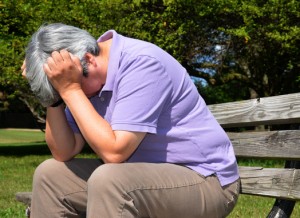PTSD and Stressful Events Therapy
I provide Atlanta therapy for PTSD and for upsetting or stressful events that do not meet the formal diagnosis criteria for PTSD.
What Is PTSD?
Post-Traumatic Stress Disorder or PTSD is defined by the American Psychiatric Association (APA) in their current diagnostic manual as “a collection of symptoms that have persisted for at least one month following exposure to actual or threatened death, serious injury or sexual violation. Exposure is defined by directly experiencing the event, witnessing it, or learning about it. The symptoms are categorized into four clusters, described as:

- Re-experiencing: spontaneous memories of the traumatic event, recurrent dreams related to it, flashbacks or other intense or prolonged psychological distress.
- Avoidance: related to distressing memories, thoughts, feelings or external reminders of the event.
- Negative cognitions and mood: represents myriad feelings, from a persistent and distorted sense of blame of self or others, to estrangement from others or markedly diminished interest in activities, to an inability to remember key aspects of the event.
- Arousal: aggressive, reckless or self-destructive behavior, sleep disturbances, hyper-vigilance or related problems.
The trigger for these PTSD symptoms is defined by the APA as exposure to actual or threatened death, serious injury or sexual violation. The exposure results from one or more of the following scenarios, in which the individual:
- directly experiences the traumatic event
- witnesses the traumatic event in person
- learns that the traumatic event occurred to a close family member or close friend (with the actual or threatened death being either violent or accidental)
- experiences first-hand repeated or extreme exposure to aversive details of the traumatic event (not through media, pictures, television or movies unless work-related.”
The APA states that “the disturbance, regardless of its trigger, causes clinically significant distress or impairment in the individual’s social interactions, capacity to work or other important areas of functioning. It is not the physiological result of another medical condition, medication, drugs or alcohol.”
Highly Effective, Brief Therapy for PTSD Symptoms
EMDR Therapy has been recognized by the American Psychiatric Association and many other national and international health organizations as an effective treatment for PTSD.
Other Types of Stressful or Upsetting Events
 You can develop one of more PTSD symptoms following experiences that do not involve actual or threatened death, serious injury or sexual violation. For example:
You can develop one of more PTSD symptoms following experiences that do not involve actual or threatened death, serious injury or sexual violation. For example:
- Job Loss, Business Loss
- Relationship Breakup, Divorce
- Medical or Dental Procedures
- Humiliation, Criticism, Shame, Bullying
- High Pressure Situations
It Doesn’t Have to Be A Life Threatening Event to Seek Counseling
Sometimes people wait too long to seek counseling for these types of stressful experiences, because they feel their experience wasn’t traumatic enough or they feel they should be able to just get over upsetting experiences. Common stressful experiences can be just as emotionally traumatic as life threatening traumas. Time doesn’t always heal these types of wounds and symptoms. So don’t hold yourself back by feeling you just have to live with it. I’m here to help.

